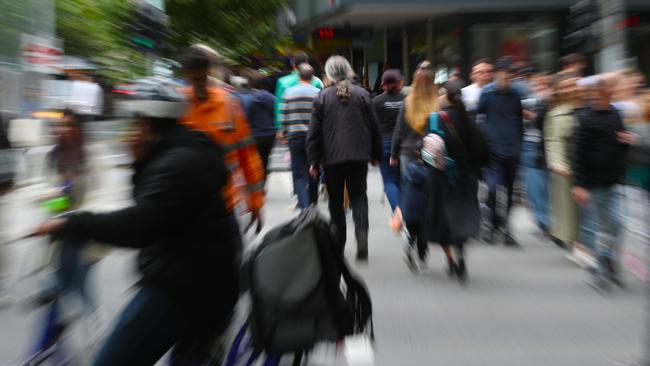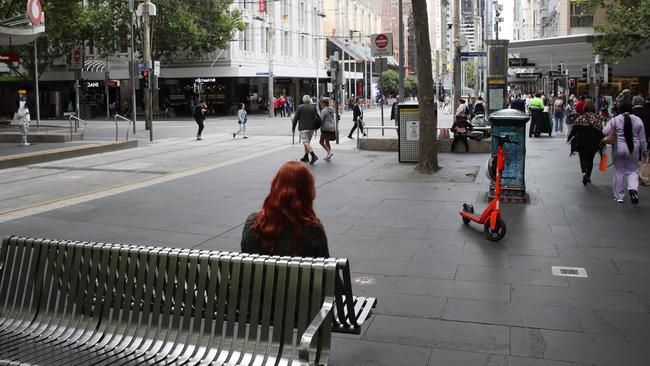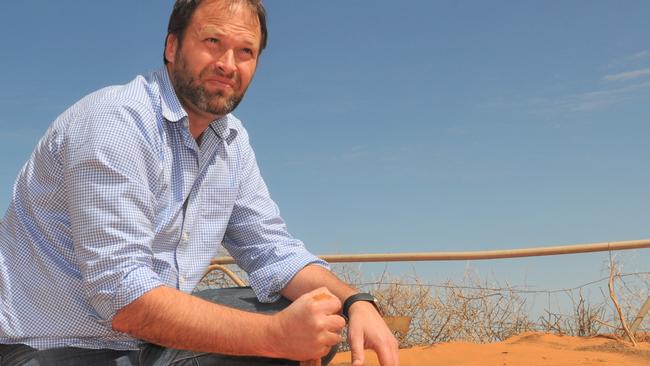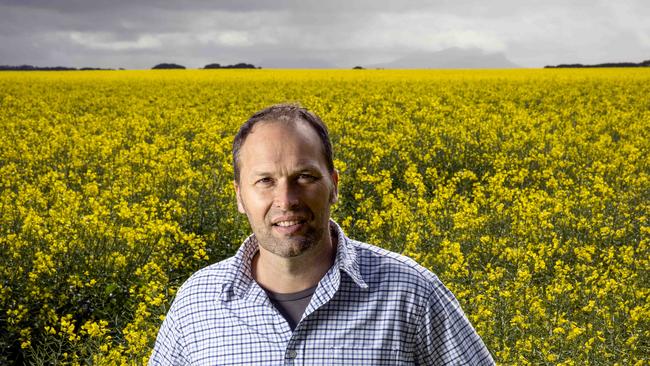Sad rise in young Victorian male suicides as separate report reveals farmer mental health crisis
Suicides of young males in Victoria have risen to a tragic high, as it’s revealed almost as many regional people took their own lives in January as in Melbourne.

News
Don't miss out on the headlines from News. Followed categories will be added to My News.
Thirteen young Victorian males under the age of 24 took their own lives in January this year.
The figure is the highest of the last five years for the same period, and compares with five in January 2020 in one in January 2021, when the state suffered the harshest Covid restrictions and lockdowns, and children were forced to stay home from school for long periods.
The latest Victorian Coroners Court Monthly Suicide Data Report reveals of the 13 young males who died by suicide in January this year, eight were aged 18 to 24 and five were under 18.
It compares with no male deaths under the age of 18 in January 2019 and 2022, and one for the same period in both 2020 and 2021.
In the under 24 age group (and including under 18s) seven males in total are confirmed to have taken their own lives in January 2022, one in 2021, five in 2020 and 12 in 2019 - making January this year the highest young male suicide rate for the month, for the last five years.
No young Victorian women under 24 have been confirmed to date as dying by suicide in January this year.
The suicide report also reveals regional Victorians are taking their own lives in almost the same number as those in metropolitan Melbourne, with 49 per cent of the state’s total suicides in January this year occurring in regional and rural Victoria (33), compared to 51 per cent in metropolitan Melbourne (43).
Last year and the year before, more than twice the number of suicide deaths for January occurred in metropolitan Melbourne as opposed to regional Victoria.

It comes as the heavy toll of life on the land in regional and rural Victoria has been laid bare, with new research revealing a shocking third of all Australian farmers have attempted self-harm or suicide, and nearly half have contemplated it.
A landmark report into the suicide rates of Australian farmers was released this week.
The National Farmer Wellbeing Report paints a heartbreaking picture of the mental health of Australia’s hardworking primary producers, with nearly a third reporting a decline in their mental health over the past few years.
The report - commissioned by dairy farmers’ cooperative Norco in partnership with the National Farmers’ Federation (NFF) - found nearly half of Australian farmers (45 per cent) had felt depressed over the last few years, with almost two thirds (64 per cent) experiencing anxiety.
Nearly half (45 per cent) had thoughts of self-harm or suicide, while a shocking 30 per cent had actually attempted self-harm or suicide.
The horrifying survey results shine a spotlight on the plight of Australian farmers, whose livelihoods are at the mercy of the elements and natural disasters, external crop and livestock prices and who sometimes experience extreme isolation and loneliness, while having limited access to mental health support services.

The report reveals almost 90 per cent of Australian farmers have had their operations and livelihoods affected by natural disasters over the past five years, setting them back an average $1.4 million per farm.
When asked what the most emotionally taxing part of the experience was, more than half cited the financial burden, followed by the impact on animals and loss of stock (39 per cent), and the physical rebuild and recovery process (37 per cent).
One in five farmers (20 per cent) reported feeling completely defeated and wanting to give up following an event.
National Farmers’ Federation vice president David Jochinke said the data highlighted a sense of shame and stigma that still felt by many Australian farmers when it came to discussing their mental health.
He urged governments and industry representatives to step in and support struggling farmers.
“Farmers are built tough and can certainly endure a lot but it’s incredibly important that we work to normalise the issue of mental health and give our farmers both permission and a safe space to share their struggles,” he said
“But to do this effectively, we need to have the right resources and support mechanisms in place to adequately address their challenges.”

Norco chief Michael Hampson said farmer mental health had to be addressed urgently, particularly in light of the recent devastating floods that had affected so many properties.
“Overlay this with years of heavy drought, bushfires and now rising input costs across all farming sectors and it’s unfortunately the reality that many farmers are doing it tough,” he said.
“What we now need to do is consider how we, as an industry and a country for that matter, can help address these challenges and work collectively to better support our highly valued and hardworking farmers well into the future.”
The report found more than three-quarters of Australian farmers thought the role they played in feeding the nation was undervalued by the Australian public.
They also felt rural and remote communities were forgotten about and left behind when it came to public policies and services, with one in ten calling for more support and government funding.
“Our farmers really are the backbone of this nation and work tirelessly to deliver essential goods to feed the Australian public, so it’s clear that more work needs to be done to acknowledge this and plug the appreciation gap,” Mr Hampson said.
“To help ensure our farmers feel valued, there’s really no better place to start than by making sure that we, as Australians, choose Aussie farmer products over foreign companies and imported products.
“This is a simple, first step that Australian consumers can get behind. But beyond this, we also need to consider ways in which we can actively help address the issue of declining mental health within our farming communities.”
Geelong teen ‘suicide cluster’ inquiry ongoing
The coronial investigation into the suicide deaths of five Geelong region teenagers and whether their deaths formed “a cluster” remains ongoing, years after the boys took their own lives in 2020.
A Coroners Court of Victoria spokeswoman said in August 2020 the suspected suicides of the boys were being investigated together, “to determine whether the group represents a defined cluster and if there are opportunities to prevent similar deaths in the future”.
“The investigation into the suspected suicides of five young people in Geelong in 2020 remains ongoing,” a Coroners Court spokeswoman said this month.
“The length of coronial investigations varies depending on the complexity of the matters under investigation. The court cannot confirm delivery of findings until dates are set and all parties are notified. As the investigations are ongoing, no further comment can be made.”
If you or anyone you know needs help call or visit:
Lifeline on 13 11 14
Kids Helpline on 1800 551 800
Beyond Blue on 1300 224 636
Suicide Call Back Service on 1300 659 467
Headspace on 1800 650 890
ReachOut at au.reachout.com
MensLine Australia on 1300 789 978
Care Leavers Australasia Network (CLAN) on 1800 008 774
Head to Health at headtohealth.gov.au




